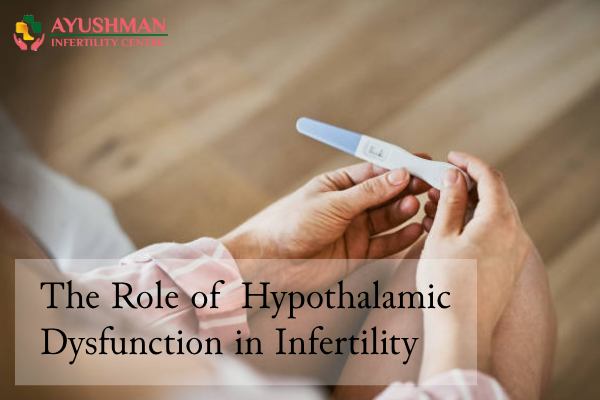
The Role of Hypothalamic Dysfunction in Infertility
The hypothalamus is a tiny yet vital part of the brain situated close to the pituitary gland. Despite its small size, it has a big impact on several essential bodily functions. It releases hormones that regulate body temperature, mood, and appetite. Additionally, it oversees how the pituitary gland releases its hormones.
The pituitary gland regulates essential glands, including the adrenal glands, thyroid, and reproductive organs (ovaries and testes). If the hypothalamus isn’t functioning correctly, it can cause hypothalamic dysfunction. This condition can affect many areas of life, including weight, libido, emotions, behavior, sleep, childbirth, and milk production.
Symptoms of Hypothalamic Dysfunction
People with hypothalamic dysfunction can experience a range of symptoms, which vary based on which hormones are affected and to what extent. In children, this condition might lead to unusual growth patterns—either slower than normal or excessively rapid. Additionally, it can cause puberty to start either earlier or later than usual.
Symptoms of hypothyroidism caused by hypothalamic dysfunction:
- Sensitivity to cold
- Low mood
- Constipation
- Exhaustion
- Raspy voice
- Alterations in skin or hair
- Difficulty with sexual function
- Irregular periods
- Weight increase
Signs of reduced adrenal function due to hypothalamic dysfunction include:
- Fatigue
- Lightheadedness
- Difficulty managing body temperature
- Intense thirst
- Frequent urination
- Severe weight gain
- Emotional difficulties
Symptoms of tumors that cause hypothalamic dysfunction:
- Vision loss
- Headaches
Symptoms of Kallmann’s syndrome:
This form of hypothalamic dysfunction specifically impacts men.
- Loss of the sense of smell
- Decreased sexual hormone activity
Diagnosing Hypothalamic Dysfunction
Thanks to progress in medical science, identifying conditions like hypothalamic dysfunction has become more straightforward. To begin diagnosing this condition, a detailed medical check-up is essential. Doctors may employ a range of tests to confirm the diagnosis, including:
- Blood and urine tests to assess
- Cortisol levels
- Estrogen levels
- Growth hormone levels
- Pituitary hormone levels
- Prolactin levels
- Testosterone levels
- Thyroid function
- Sodium levels
- Osmolality
- Timed blood samples following hormone injections
- MRI of the brain
- CT scan of the brain
- Visual field eye exam if a tumor is suspected
Treatment for Hypothalamic Dysfunction
Treating hypothalamic dysfunction involves several approaches, with the most effective one depending on the underlying causes. Therefore, alongside confirming the diagnosis, doctors must pinpoint what’s triggering the condition. Common causes of hypothalamic dysfunction include:
- Genetic conditions
- Congenital abnormalities
- Eating disorders
- Tumors
- Infections
- Autoimmune diseases
- Radiation exposure
Sometimes, the precise cause of hypothalamic dysfunction is unclear, in which case it is referred to as idiopathic hypothalamic dysfunction.
Unfortunately, there is no proven treatment for these cases yet. For most other instances, treatment typically involves options like surgery, radiation, or hormone therapy.
Surgery and Radiation
When hypothalamic dysfunction is caused by tumors, surgery, and radiation are often suggested as treatment options. Tumors can press on the hypothalamus, impairing its function. Symptoms of hypothalamic dysfunction due to tumors often include:
- Loss of vision
- Often headaches
For small, localized tumors, surgery is often the initial treatment, focusing on completely removing the tumor. Afterward, radiation might be used to prevent any recurrence. For larger tumors, radiation is typically used initially to shrink the tumor, making it easier to surgically remove later.
Hormone Supplements
When the thyroid and adrenal glands aren’t making the necessary hormones, hormone supplements are often prescribed to fill in the gaps. It’s crucial to adhere closely to your doctor’s instructions when taking these supplements, whether in pill form or injections. Do consult your doctor before making any changes to the dosage.
In addition to medication, embracing a healthier lifestyle can also enhance hypothalamus function. Beneficial fats, such as those in olive oil, can support hormone production. Consistent exercise and adequate sleep are crucial for general health and can enhance hormone balance.

Leave a reply